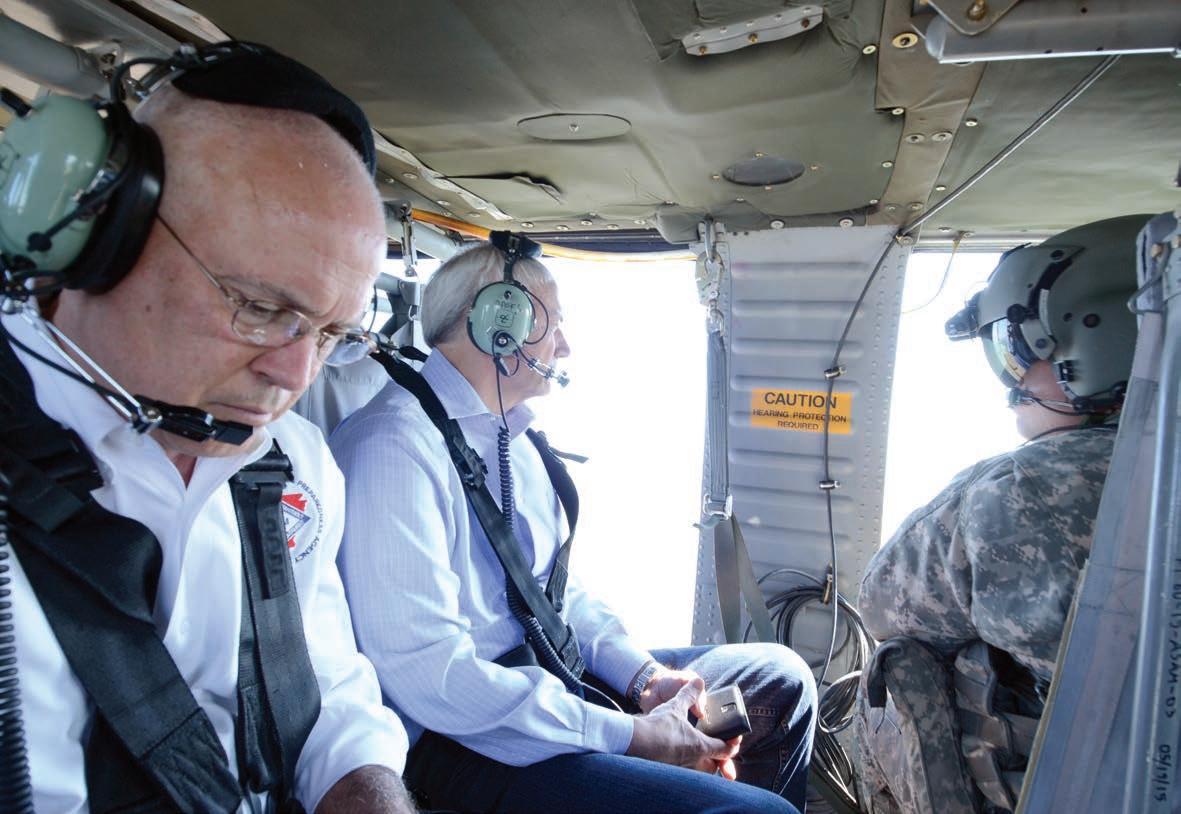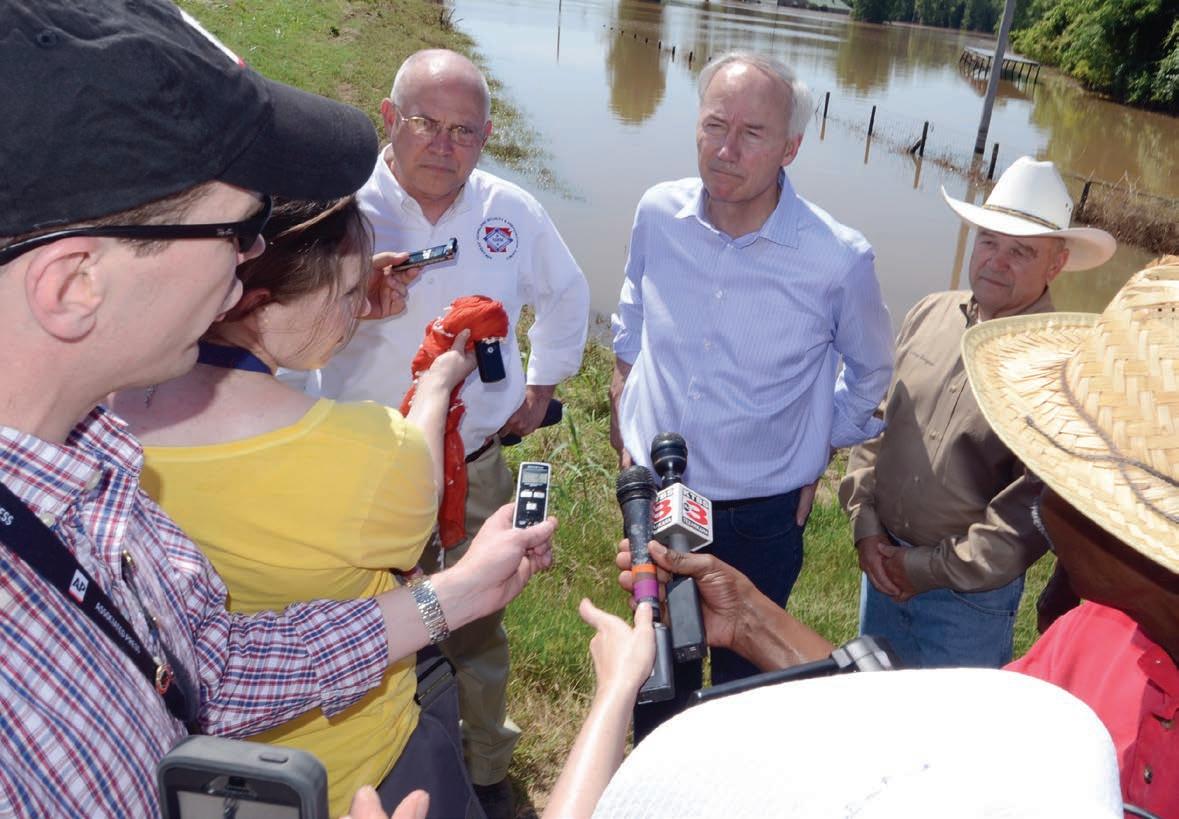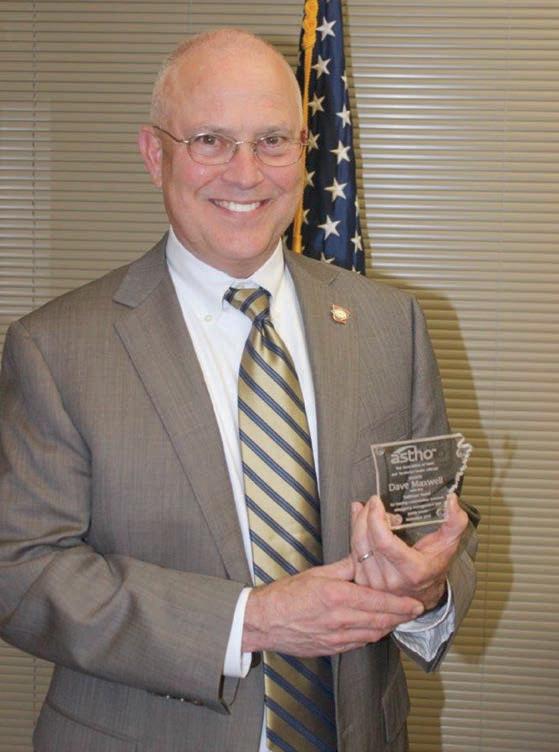
12 minute read
Savings Times 2
Focusing on financial wellness
Savings times 2
In his last County Lines article, AAC Executive Director Chris Villines talked about providing for county government’s most valuable resource — the more than 15,000 people employed by counties in Arkansas. Chris discussed five areas in which the AAC is working to help improve the lives of those who work for counties. One of those areas is financial wellness, which is a huge topic of discussion in many households across the state and the nation.
Financial difficulties impact so many areas of our lives. Financial stress creates tension in our homes, in our families and in our marriages. The worry and anxiety over finances then spills into our work relationships and performance. I would venture to say that at one time or another we all have been under the unrelenting pressure that financial challenges bring. The American Psychological Association’s report “Stress in America” states that money and financial problems rank as the No. 1 cause of stress. That is why the AAC is working with the Dave Ramsey Financial Peace Government program.
Many of you have probably heard of, or participated in, the Dave Ramsey Financial Peace program. Dave Ramsey also offers a personal money management training program tailored to the requirements of government officials and the specific needs of government employees. This program is called “Financial Peace – Government.” It is currently used by a variety of groups associated with different aspects of public service: U.S. Customs and Border Patrol; the Dallas Police Department; the Police Department of Carthage, Mo.; Orange County, Fla.; and the Florida Sheriffs’ Association.
Financial Peace-Government teaches a step-by-step process and an easy-to-understand plan designed to get control of your money and improve your financial situation. The program unites strong financial education with practical steps to change behavior. There are 12 lessons in this program taught by Dave Ramsey himself via DVD. A group leader facilitates the weekly classes. The lessons help participants learn to actively manage their income, eliminate debt and put longterm planning into place. The program combines individual study with group accountability to ensure consistent results.
Eric Smith, the military and Wallet & waistline government advisor for Financial Peace-Government, said this about the program: “My team focuses on helping leaders and supervisors gain control of three major issues affecting organizational performance: 1) rising rates of divorce 2) trends for individuals to file for bankruptcy and 3) the increasing rates of self-destructive Becky Comet behaviors among public sector AAC Member employees. Numerous studies Benefits Managerattribute financial stress as an often-underlying cause of all of the above. I hear compelling stories of employees with mounting personal debt who have trouble separating workplace and home challenges. Our program helps employees understand how to live better with the income they have. We believe that employees who are content and with no financial stressors are better suited to operate in the workplace.”
The Financial Peace-Government Program can have a great impact on your employees’ lives. Just as companies and various government agencies have witnessed a decrease in health care costs by promoting health and wellness programs, employers can see a significant return on investment by offering a high-quality financial wellness program. Companies that offer financial wellness programs have seen reduced absenteeism, increased productivity, decreased turnover and greater team loyalty.
The AAC is committed to facilitating the acquisition of the Financial Peace-Government Program. We are looking into some corporate sponsorship to purchase the program materials. Counties also can seek partnership with local religious and civic organizations for scholarships.
Please contact me at (501) 372-7550 or bcomet@arcounties. org for more information and help in acquiring the program for your county’s employees.
75 Counties - One Voice
AAC f amily & f riends » » » » » » » » » » » » » » » » » » » » » » » » » » » » » » » » » » » » » Some options are irresistible
Fiduciary assistance and a zero-fee option for smaller public sector plans? Sweet.
Nationwide’s new 457(b) options offer smaller plans features normally only available to larger entities. Now more of the public sector can benefit from Investment Fiduciary Services provided by Morningstar Associates and a zero fee administration option — which makes life a little easier for plan sponsors while putting retirement within reach for participants.

Let’s talk about putting our new offerings to work for your plan.
Contact Linda Barber: 1-614-435-8328 barberl@nationwide.com NRSforU.com/plansponsor
Information provided by Retirement Specialists is for educational purposes only and not intended as investment advice. Retirement Specialists are registered representatives of Nationwide Investment Services Corporation, member FINRA. Nationwide Retirement Solutions, Inc. and its affiliates (Nationwide) offer a variety of investment options to public sector retirement plans through variable annuity contracts, trust or custodial accounts. Nationwide may receive payments from mutual funds or their affiliates in connection with those investment options. For more detail about the payments Nationwide receives, please visit www.NRSforU.com. Nationwide Retirement Solutions, Inc. and Nationwide Life Insurance Company (collectively “Nationwide”) have endorsement relationships with the National Association of Counties and the International Association of Fire Fighters – Financial Corporation. More information about the endorsement relationships may be found online at www.nrsforu.com. Investment advisory services are provided by Morningstar Associates, LLC, a registered investment advisor and wholly owned subsidiary of Morningstar, Inc. Neither Morningstar Associates, LLC nor Morningstar, Inc. is affiliated with Nationwide or its affiliates. The Morningstar name and logo are registered marks of Morningstar, Inc. Nationwide and the Nationwide framemark are service marks of Nationwide Mutual Insurance Company. © 2013 Nationwide Retirement Solutions, Inc. All rights reserved. NRM-9664M1.NX (05/13)


Standing down
David Maxwell prepares to retire, and learn to relax, after a decade as state’s emergency management director
Story By Jennifer Barnett Reed For County Lines Photos Courtesy of Arkansas Department of Emergency Management
As the man responsible for planning how the state will respond to every conceivable kind of disaster, Department of Emergency Management Director David Maxwell has learned to live in the “what if” world of an unimaginable future.
But there’s a part of him that’s remained firmly rooted in the past as well — to the years he spent on the front lines of disaster response, to very real afternoons spent with desperate people who looked to him to make things better.
Maxwell is set to retire June 30, 10 years after he was appointed director by former Gov. Mike Huckabee and nine-and-a-half years after he’d originally planned to hang up his hat. In that decade, Maxwell brought stability back to the department, which had gone through three directors in the two years before he took the post. He oversaw the construction of a badly needed state-ofthe-art emergency management facility at Camp Robinson. He put a lot of effort into repairing the department’s relationships with Arkansas’ 75 county judges, which had also gone through a rocky stretch for a few years. He served a one-year term as president of the National Emergency Management Association, and he has served on a number of national committees related to emergency management.


Opposite Page: ADEM Director David Maxwell and Arkansas Gov. Asa Hutchinson assess flood damage caused by heavy rains in June 2015 in Southwest Arkansas. Above: Reporters questions Maxwell and Gov. Hutchinson, who is standing next to Miller County Judge Larry Burgess.
It’s a pretty distinguished career for a man who never intended to make emergency management his life’s work.
“It was an accident,” Maxwell said of his career choice. He was a job-hunting sociology graduate in September 1978, when heavy rains caused major flooding in Little Rock. His uncle called and told Maxwell there were positions available for caseworkers for a program that provided assistance to flood victims.
“I told him I was a sociologist, not a caseworker,” Maxwell said. “He pointed out that I was an unemployed sociologist.”
The following April, two tornadoes hit Hamburg just days apart, and Maxwell was part of the emergency assistance effort there too. One day a woman came into his office to ask for his help. She and her husband had lost their home to the first tornado, and the second tornado hit the mobile home they’d moved into and soaked everything they had left. Her husband was also dying of cancer, and she’d just found out that their application for emergency assistance had been taken out of the system. Maxwell was livid. He not only reinstated her application, he issued an immediate order to set up another mobile home for them — before they were even officially back in the system.
“I was able to help her, but I got in trouble,” he said. “I would fire an employee for that today. Maybe. I wouldn’t authorize it, I’ll say that.”
Soon he was hired as a planning specialist for the Department of Emergency Management, and spent the next two decades rising through the ranks. In 2002 he was promoted to deputy director by then-director Bud Harper, a former Sebastian county judge.
“Disasters kind of get in your blood,” he said, explaining why he never went back to his original career choice. “Everything I’d done up to that point — school, working at the soil conservation agency — I was never able to see the results of any work I’d done. With this, I got immediate gratification. I saw results. I put people in housing. It really kind of grabbed me.”
Maxwell’s almost four-decade career has spanned an enormous amount of change within the emergency management field. When he started, the Cold War loomed large and nuclear disasters were a major focus. As that threat faded, planning officials were able to concentrate more on natural and manmade disasters, Maxwell

Maxwell
Continued From Page 27 <<<

Above: Retiring ADEM Director David Maxwell was awarded the Association of State and Territorial Health Officials’ first Trailblazer Award in April 2016. According to a news release, the award honors Maxwell’s “outstanding and dedicated service to emergency management and years of excellence in leading the collaboration between emergency management and public health.”
said. They developed response plans for everything from hazardous materials to floods and tornadoes to Africanized honeybees.
“We have a checklist for any disaster you could possibly think of,” he said. “And just in case we haven’t thought of something, we have a miscellaneous one.”
The 1990s brought new threats: Y2K and, after the Oklahoma City bombing in 1995, terrorism. While Maxwell was busy addressing those major issues, the state epidemiologist called wanting to talk about the possibility of a pandemic. Then the state veterinarian about foreign animal diseases.
“That really scared the hell out of me,” Maxwell said. “That was all in 1999. It was a really interesting year.”
Then came the Sept. 11, 2001 terrorist attacks, which “changed this business,” Maxwell said.
“When you look at the asymmetrical threat we’re facing from terrorism, it’s almost going back to the Cold War,” he said. “It’s so cyclical.”
In 2005, Hurricane Katrina put a major strain on the relationship between the ADEM and the counties, Maxwell said. With 14,000 Katrina refugees overwhelming local governments and the Department of Emergency Management’s director’s office experiencing its own turmoil and turnover, Maxwell said county judges began reaching out to him because he was a known entity, and they believed they could depend on him. The next year, 2006, he was appointed ADEM director.
“At the base of it, we’re in the customer service business,” Maxwell said, describing the approach he’s taken to restoring good relationships with county judges. “As long as you have that attitude, relationships follow.”
It’s not just the attitude, though. Maxwell’s practical experience and knowledge of emergency management and disaster planning earned the respect of the state’s county judges, said Sebastian County Judge David Hudson, president of the County Judges’ Association of Arkansas.
“Plus he’s just a heck of a nice guy to work with,” Hudson said. “He’s a real, true public servant. We’ll miss him.”
While Hurricane Katrina was an unprecedented challenge, Maxwell said it taught him an important lesson that hearkened back to his experience helping the woman all those years ago after the Hamburg tornadoes: rules may be rules, but you have to empower the people in the field to do their job.
“I have told my staff I would back them up for anything done in the field if they’re trying to help someone,” he said.
And his willingness to give counties the resources they needed was crucial, Hudson said.
“We had a meeting on what kind of flexibility we had to take action with regard to financial support,” Hudson recalled. “He authorized, over the phone, $1 million. We didn’t need that much, but that was the type of confidence and the level of understanding he had of the processes and the funding streams and the need to make decisions on a timely basis.”
Maxwell said the biggest challenge of his time as director was the sheer number of major disasters ADEM has responded to — 19 federally declared disasters in 10 years. One of his proudest moments came just this past April, when he was named the first recipient of the Association of State and Territorial Health Officials’ Trailblazer Award. The award recognized his service to emergency management as a whole, but specifically his work leading a collaboration between the fields of emergency management and public health.
“To be able to effect a relationship between two national groups, two disciplines, really meant a lot to me,” Maxwell said.
So what’s a guy who’s been perpetually on call for 38 years going to do once he turns off his work phone for good? He has no idea.
“I’m not sure what relaxed feels like,” he said. “Will I know it when I get there?”
He’s planning to do some consulting work for the National Governor’s Association this summer and hopes to do more if it comes up. And he’ll also start enjoying a personal life for the first time in decades.
“I played golf once this year and once last year,” he joked. “I owe my wife a lot of time.”



